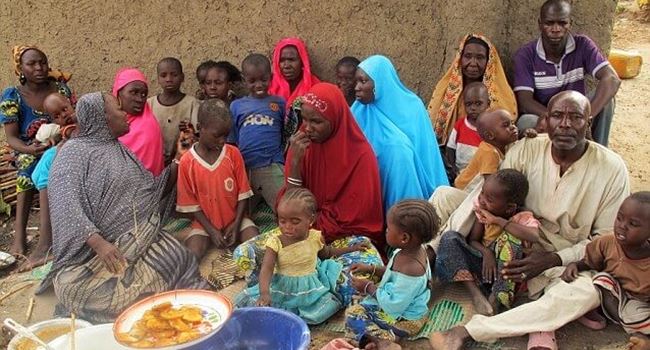ABUJA: The World Bank has revealed that about 139 million Nigerians are now living in poverty, despite the economic reforms implemented by the Federal Government which have led to increased revenues across all tiers of government.
The World Bank’s Country Director for Nigeria, Mathew Verghis, disclosed this on Wednesday, October 8, during the launch of the Nigeria Development Update (NDU) report in Abuja.
According to Verghis, although Nigeria’s economy has recorded some progress — including rising revenues, improved debt indicators, stabilised foreign exchange markets, growing reserves, and easing inflation these gains have not translated into better living conditions for most citizens.
These are big achievements. However, despite these stabilisation gains, many Nigerians are still struggling. Most households are battling with eroded purchasing power, he said.
“In 2025, we estimate that 139 million Nigerians live in poverty. The challenge is clear how to translate the gains from the stabilisation reforms into better living standards for all.
Verghis stressed that Nigeria must urgently address high inflation, particularly food inflation, improve the efficient use of public funds, and expand social safety nets to ensure the poorest citizens benefit from ongoing reforms.
Food inflation affects everyone, but particularly the poor, and it has the potential to undermine political support for reforms. Nigeria must ensure that public spending drives real development results that benefit people, he added.
Presenting an overview of the report titled From Policy to People: Bringing the Reform Gains Home, Samer Matta, the World Bank’s Lead Economist for Nigeria, said federal revenues had grown significantly in the past eight months.
However, he raised concerns over the high deductions made by revenue collection agencies, warning that such deductions do not contribute meaningfully to national development.
Matta described the country’s economic outlook as cautiously optimistic, supported by steady growth, easing inflation, and fiscal stability, but warned of lingering risks including oil price volatility, reform fatigue, election uncertainties, and climate shocks.
According to the report, Nigeria’s GDP growth is projected to rise modestly to 4.4 percent by 2027, driven by strong performance in services, agriculture, and industry, while inflation is expected to ease to 15.8 percent within the same period due to tight monetary policies and improved supply conditions.
The fiscal deficit is projected to average 2.7 percent of GDP in 2026–2027, supported by increased tax revenues and reduced interest payments, keeping the country’s debt level stable at around 40 percent of GDP.
The report also revealed that state and local governments have significantly increased capital expenditure, accounting for 60–65 percent of total spending, up from about 1 percent of GDP in 2022 to 2.7 percent projected in 2025.
However, it noted that the Federal Government still spends about 70 percent of its budget on wages and salaries, leaving limited fiscal space for capital projects.
The outlook remains subject to several risks growth and disinflation are vulnerable to oil price shocks, reform fatigue, election cycles, and climate-related disruptions, the report concluded.



